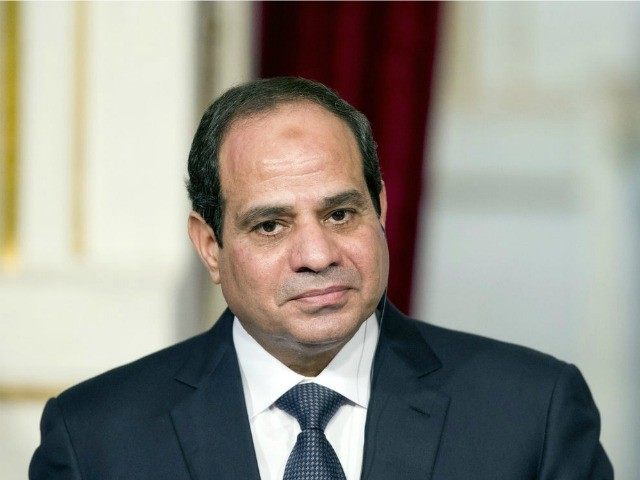President Abdel Fattah al-Sisi’s Egyptian government has gotten a cold shoulder from the Obama administration until now, but security fears may be thawing out that relationship.
The Wall Street Journal suggests the thaw began after the Islamic State (ISIS/ISIL) claimed responsibility for the downing of a Russian passenger jet over Egypt in October. After years of distance, following Sisi’s overthrow of the Muslim Brotherhood, U.S. officials were suddenly frequent flyers to Cairo.
“The possibility that the mysterious crash of an Egyptian airliner last week was another act of terrorism has only intensified worries that Mr. Sisi is unable to contain the threat, according to a U.S. official, a Western diplomat and other experts,” the Journal reports.
Egypt expert Michael Hanna of the Century Foundation added that “Egypt is too big to fail in the eyes of the U.S. and Europe.” Team Obama does not like Sisi any more than they liked Hosni Mubarak, but they may have finally accepted that nothing better is likely to follow the Sisi government if it topples, he alleges.
Also singing a different tune these days is Senator Lindsey Graham (R-SC), who was initially outraged by Sisi’s overthrowing the elected (but nonetheless horrible) government of the Muslim Brotherhood, and called for a freeze on U.S. aid to the Egyptian military. Now, he wants more funding, saying that Egypt’s “stability is more important than at any other time.”
The Journal heard similar calls from House Speaker Paul Ryan (R-WI) and Rep. Michael McCaul (R-TX), chairman of the House Committee on Homeland Security. McCaul noted that security for EgyptAir is a major American interest because the airline flies from Cairo to New York.
Some of this newfound respect for the Sisi regime might be a response to Moscow’s overtures to Egypt, which include a $25 billion loan for constructing Egypt’s first nuclear power plant. A comparable investment in Egyptian infrastructure has been made by Saudi Arabia, which has been laying the groundwork for a post-American Middle East in which Iran and its Shiite axis becomes a much greater threat than ISIS or al-Qaeda.
ISIS remains a major concern for Egypt, with an active insurgency in the Sinai. The Journal reports:
In north Sinai where the insurgency is centered, there have been on average 70 attacks a month on security services since January, compared with less than 30 in the same period in 2014, according to an analysis by the Tahrir Institute for Middle East Policy.
Fears exist that continued terrorist activity, or a plausible claim of terrorist responsibility for the downing of EgyptAir Flight 804, could prompt the Sisi government to intensify its crackdown on political opposition. Egypt’s strategic importance should not be allowed to obscure the extent of that crackdown.
For example, another Wall Street Journal report on Wednesday had France expressing “deep regrets” over Egypt’s decision to expel French journalist Remy Pigaglio for “unspecified security reasons.” Not only did the Egyptians boot him out of the country, but they held him in detention for 24 hours, denying his requests to contact the French ambassador, without ever getting around to telling him why he was in trouble.
“The decision is fueling tensions between Paris and Cairo at a time when French President François Hollande has been forging stronger ties with Mr. Sisi’s government,” the WSJ reports, adding:
Officials in Paris consider Mr. Al Sisi a bulwark against Islamic radicalism in the region and have signed billions of dollars of deals to sell high-tech weapons to Egypt over the past year. A delegation from the French parliament was in Cairo on an official visit at the time of Mr. Pigaglio’s detention.
The Committee to Protect Journalists considers Egypt second only to China for throwing reporters in jail, which is quite an achievement, considering the stiff competition from reporter-imprisoning heavyweights such as Turkey.
The New York Times notes that Egypt rarely treats foreign journalists so harshly, and it is particularly odd to see Cairo picking a fight with Paris while the attention of the world is focused on an airplane that evidently exploded while en route from the latter to the former. It is stranger still when considering that France has been one of Egypt’s more reliable supporters, recently signing a billion-dollar weapons deal with the Sisi government.

COMMENTS
Please let us know if you're having issues with commenting.